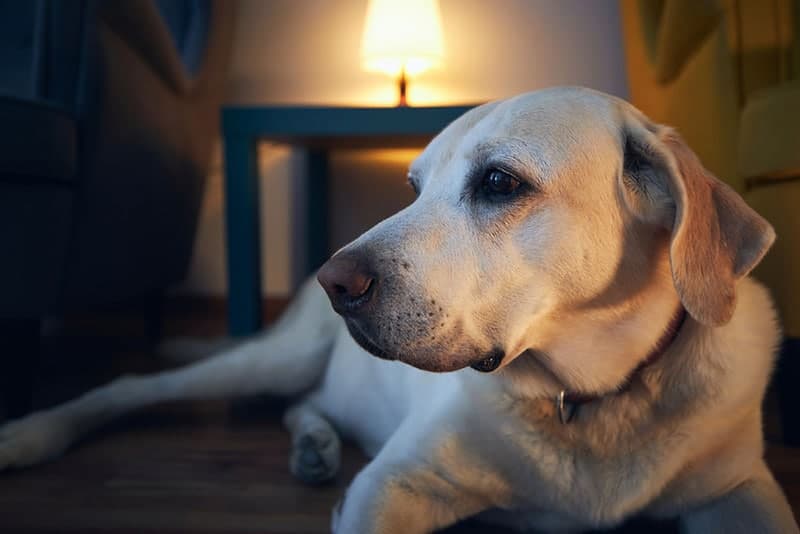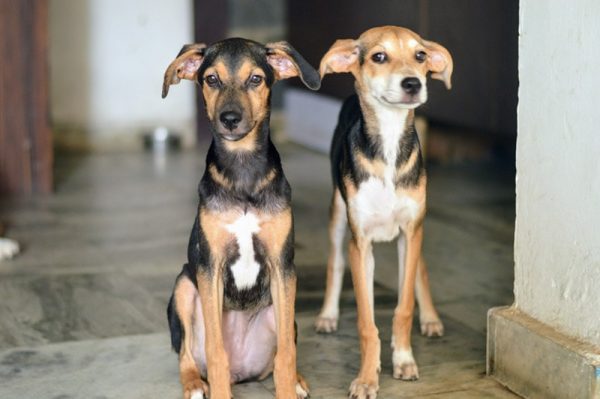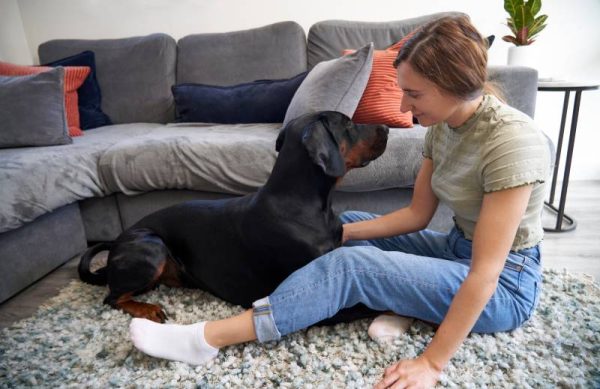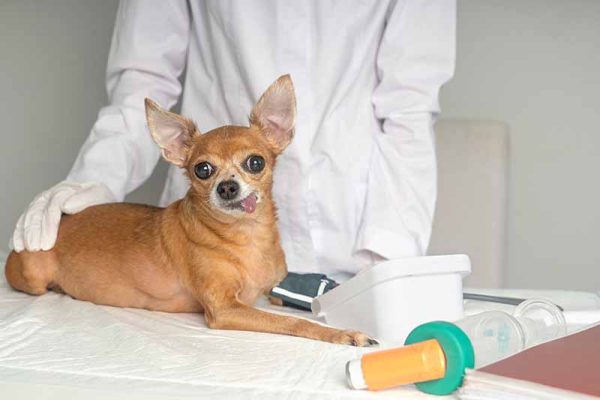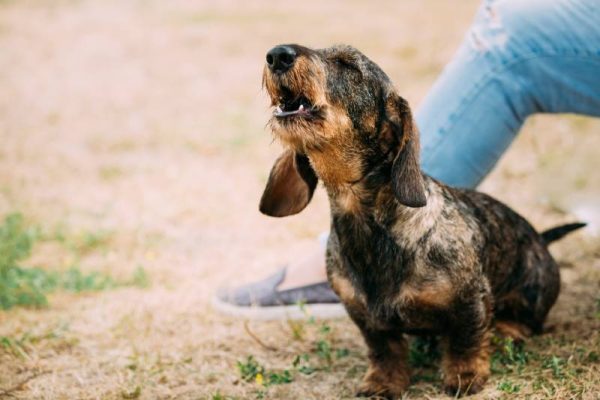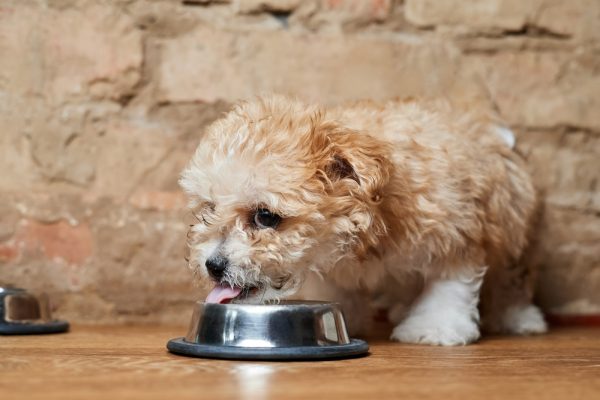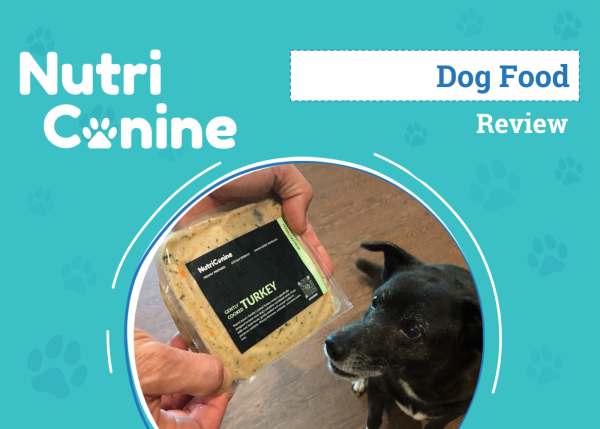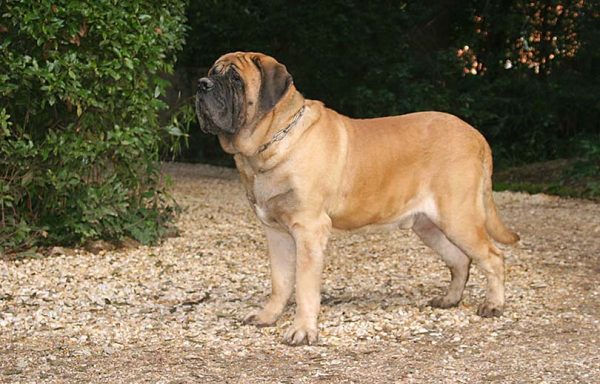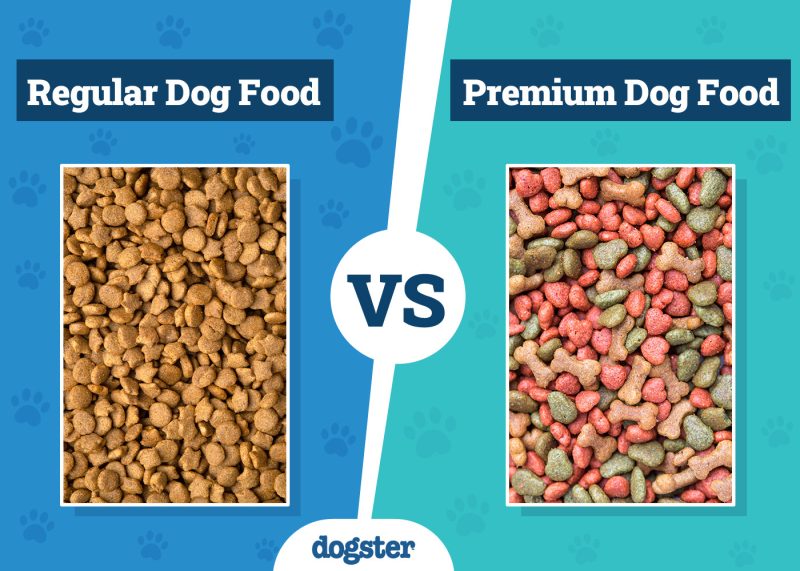We’ve all laid down after a long day and found ourselves groaning on the way down, so it should come as no surprise that dogs often do this too. There are actually a few reasons that your dog might be groaning as they lie down, and some of them are reasons for concern, so it’s important for you to pay attention to the other cues your dog is giving you to determine if you should be worried.

The 6 Reasons Your Dog Groans When Lying Down
1. Contentment
One possible reason that your dog might be moaning and groaning is because they’re completely happy and content. Some dogs will make groans and other little noises of contentment while lying down in a comfy spot or getting attention from their favorite people. If your dog seems perfectly fine in every way and simply groans from time to time, then there’s likely no reason for you to be concerned.
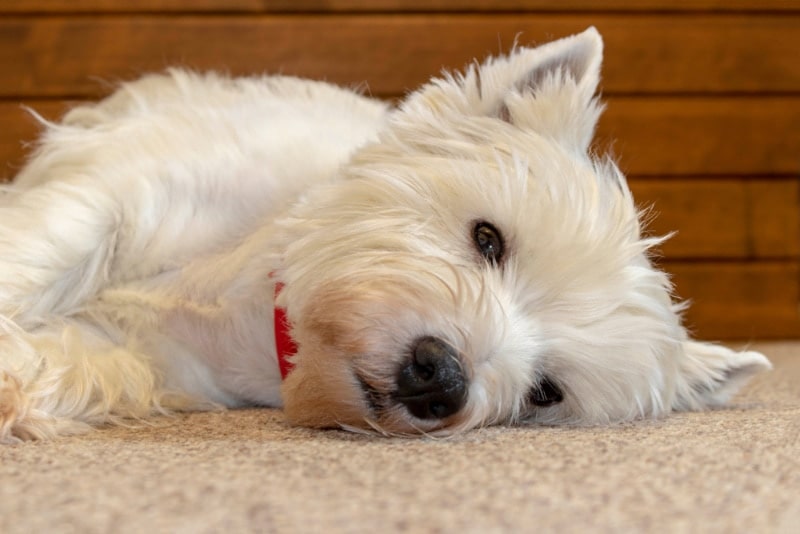
2. Tiredness
Just like in humans, sometimes simply being tired can lead to groaning. Of all the times you’ve gone to lie down after a long day and let out a groan, did you do it intentionally? More than likely, it was just an automatic reaction. It’s common for dogs to do the same things, especially after a long day of traveling, exercise, or play.
If your dog has had a big day, then you likely shouldn’t be concerned about a little bit of groaning as they lie down. If they seem to be groaning a lot or groaning every time they change position, then you may need to investigate other causes.
3. Stomach Problems
There are many stomach problems that dogs can experience, from mild to severe. Mild to moderate stomach problems, like diarrhea, vomiting, bloating, and constipation, may cause your dog to groan as they lie down. More severe problems, like pressure from tumors, can also cause groaning and grunting as your dog lies down. You may also notice your dog groaning as they change positions, as sometimes the position change will exacerbate the discomfort they’re feeling.
Did you know that you can speak with a real vet online about your dog’s health?
4. Ascites
Ascites is what it’s called if your dog has excess fluid in their abdomen. This fluid is free-floating in the abdomen and not contained within an organ, so it does lead to noticeable swelling and distention of the abdomen. Ascites are indicative of an extremely serious medical problem, causes include liver failure, heart failure, cancer, and peritonitis.
If your dog is experiencing ascites, they will groan from pain and discomfort. Ascites will also make it more difficult for your dog to breathe, so they may groan as they’re trying to breathe better. If your dog’s abdomen is swollen and distended, it should be treated as a medical emergency, even if they don’t have a diagnosed medical condition. Some cancers and diseases can show very few signs until they become extremely advanced and deadly.
5. Pain
Dogs experience pain for many reasons, from injuries to illnesses. Dogs with arthritis and other chronic pain conditions may groan as they lie down, stand up, or reposition themselves. Acute pain caused by new injuries or acute illnesses can also cause groaning from your dog. During a surgical recovery period, your dog may groan from pain as well.
Medical advancements have provided lots of great options for pain control for dogs, so it’s important for you to talk to your vet about the options if your dog seems to be groaning and in pain. It’s extremely important that you never give your dog any human medications, including over-the-counter pain medications and prescription narcotics. Some of these medications can be deadly for dogs. Always consult with your vet before giving any type of medication at home.
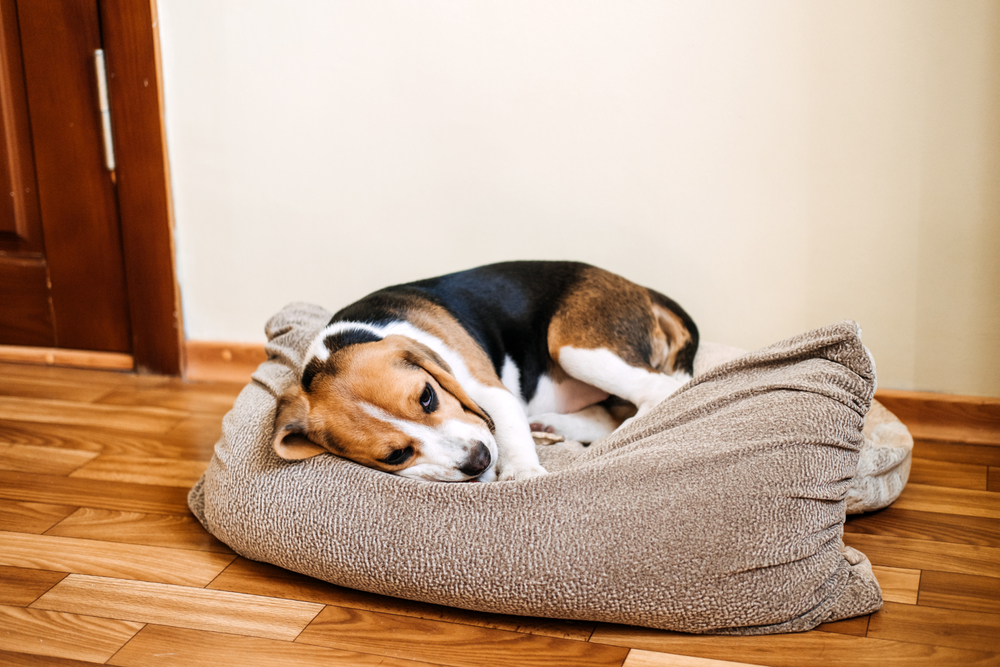
6. Confusion
As dogs age, they may begin to experience cognitive changes from canine cognitive dysfunction, or CCD. This condition is similar to dementia in humans and can cause your dog to experience confusion. New situations and low-light environments can exacerbate your dog’s confusion. Confused dogs might increase their vocalizations, including the use of groans and moans.
If your dog has had surgery and is still recovering from anesthesia, then you may also hear them groaning as they attempt to understand what’s happening around them. Dogs confused by anesthesia will start to feel better as the medication wears off. Cognitive changes causing confusion can be managed but may not be fully remedied by current medical options. Talk to your vet about the options for your dog, though.

What to Do if Your Dog Is Groaning a Lot
If you’re having any difficulty determining if your dog is groaning from contentment or discomfort, then you should have them evaluated by your vet for safety. If your dog has started to groan when they lie down or change position and you’re also noticing other changes, like lethargy, inappetence, limping or stiffness, excessive licking or chewing, or yelping when handled, then it’s important that you have them seen by a vet as soon as possible. Since some of the causes of groaning are life-or-death conditions, it’s best to have your vet rule them out quickly.
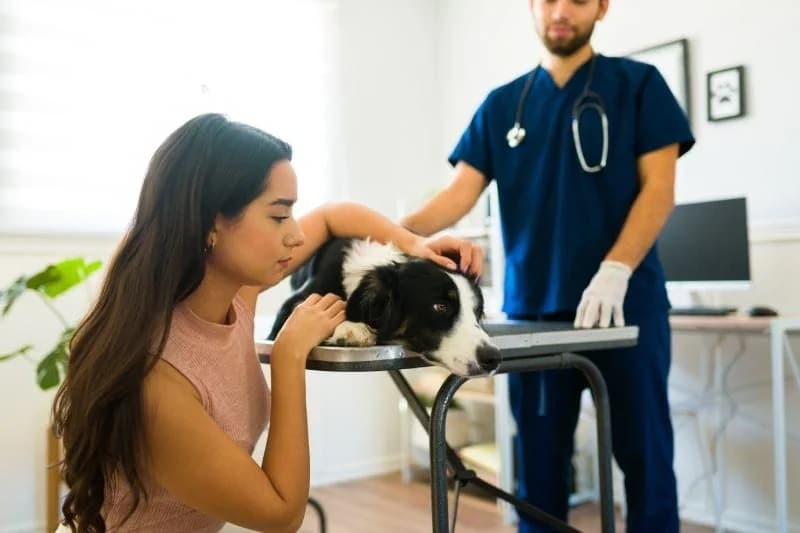

Conclusion
Your dog may groan as they lie down for many reasons, but groaning is most commonly simply because your dog is content or tired after a long day. If your dog has only groaned once or twice, then there likely isn’t a reason for concern unless you’ve seen signs of an illness. However, if any of the conditions mentioned above sound like something your dog may be experiencing or they have a diagnosis of an illness or injury, then a vet visit is in order to keep your dog healthy, safe, and comfortable.

If you need to speak with a vet but can’t get to one, head over to PangoVet. It’s our online service where you can talk to a vet online and get the personalized advice you need for your pet — all at an affordable price!
Featured Image Credit: Jaromir Chalabala, Shutterstock
